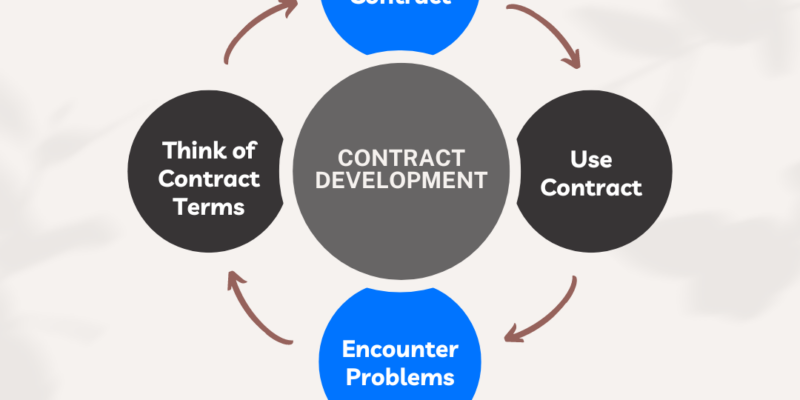There’s a lot more to contracts than just the words on the page. I take special care with every contract I write. However, I realize I don’t have a lot of articles explaining much of my process. Therefore, I’m starting a deeper dive into contracts series of articles where we explore how I develop my […]
Service Contracts are Iterative
A standard service contract is meant to be iterative in nature. They are as long lasting as your business, and they should change when appropriate to do so. The goal, when writing a service contract, is to cover as any scenarios and pitfalls as possible up front. However, you can’t always catch everything. Often times, […]
Guardianship: The Most Important Part of Your Will
In my opinion, there’s one part of your will that is more important than all the others: the guardianship provision. If you have minor children, or might obtain them at some point, it’s very important to tell the court who you want to take care of your children should you die. To me, all the […]
How Do Trusts Protect Your Legacy
There are many ways to leave a legacy. Trusts are only a small part of what you can do to preserve the one you’ve created. In this article, we’re going to explore what they do and what they don’t do. We should start by acknowledging that trusts are not for everyone. They’re honestly not for […]
Going Consultant After a Layoff
If you got laid off, you might be considering becoming a consultant after a layoff. A lot of people find this route a great way to bridge a gap between employment. You may even fall in love with it. Being a consultant comes with a lot of its own perks. You set your hours. You […]
Is An LLC Right For Me? USITT Edition
Is an LLC right for me? Recently, my friend Andrea asked if I’d be willing to participate in a session at USITT. The topic: Is an LLC right for me? Fortunately, I’ve advised hundreds of clients on this specific topic. The main takeaways are: To fully cover this topic, I need to cover a few […]
Can You Sue If You Get Hurt While Drunk?
As with most areas of law, suing when you get hurt while drunk is very situational. Recently, the North Carolina Court of Appeals answered this question in Lovett v. Univ. Place Owner’s Ass’n, 2022-NCCOA-594. To read the full case and find other cases, check out https://appellate.nccourts.org/opinion-filings/?c=coa. Background Information In this case, the plaintiff is suing […]
How Do I Evict a Tenant?
How do I evict a tenant? Sometimes you need to evict someone. It’s not a great position to be in, but it happens. First and foremost, it is almost always better to work things out with your tenant ahead of time. Additionally, a few dollars spent doing a credit and background check ahead of time […]
What Does Law++ Do With Contracts?
What Does Law++ Do With Contracts? As part of an effort to help our community understand what we’re about, we’re answering this question. I spend more time on contracts than non-contract related activities in the firm. That’s probably because contracts encompass so many other areas of law. Mergers and Acquisitions, real estate, employment, and of […]
Residential Leases
Residential leases are the cornerstone of landlord tenant relationships. Whether you’re renting your one bedroom home or have a residential empire, you need a lease. The Laws Firstly the North Carolina Residential Rental Agreements Act, Chapter 41, Article 5, governs residential leases. Secondly, property and contract laws generally apply. Thirdly, you must also consider consumer […]
What Can I Do When A Client Does Not Pay?
When a client does not pay you, you have a few options. However, often times, your clients leave you limited options. Obviously, we prefer that everyone holds up their end of the bargain in every deal. Unfortunately, that’s not the world we live in. Proactively First and foremost, you need well written protective contracts. The […]
Amend Articles of Organization
If you want to amend your articles of organization, you’re in luck. The process is actually quite easy! Amendment of Articles of Organization Law If you want to read the law regarding articles of organization, you’ll want to start with NCGS §§ 57D-2-21 & 22. Why Would You Want to Amend Your Articles of Organization? […]











